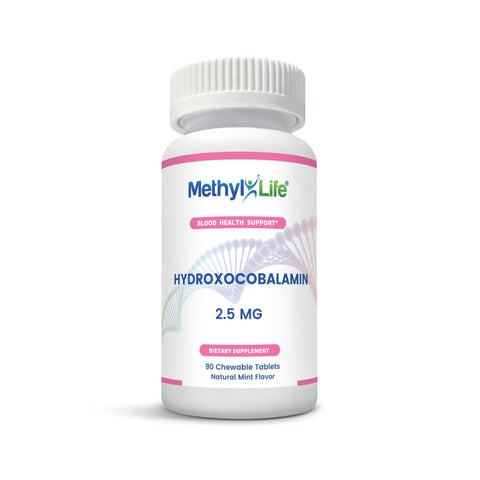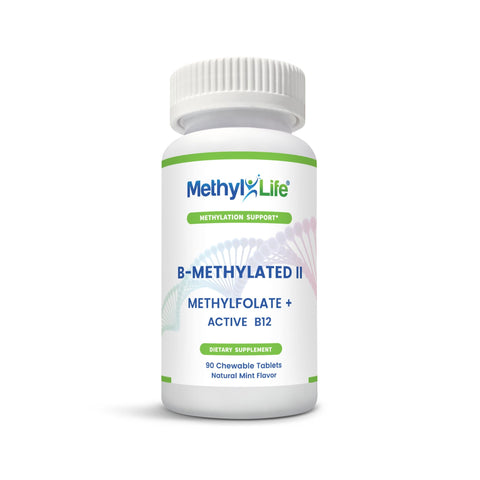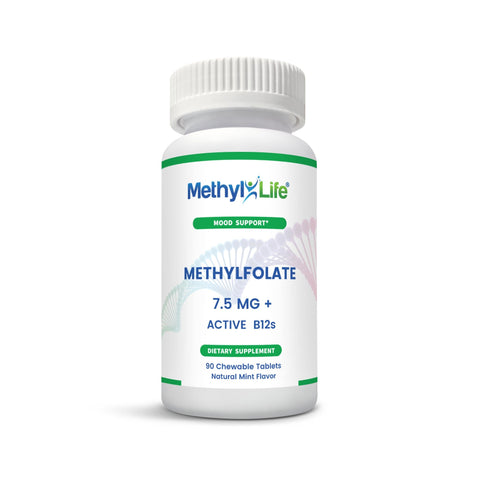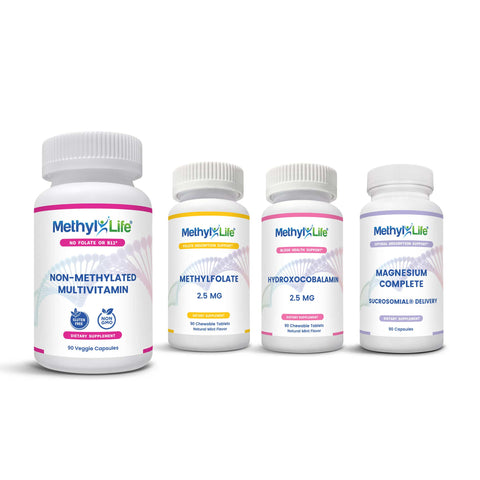Folplex is a generic brand name included in the multivitamins and supplements category which has been used for the treatment of nutritional deficiency. It contains active ingredients including vitamin B12 (or cyanocobalamin - 0.5 mg), vitamin B6 (or pyridoxine - 25 mg) and Folic acid (or vitamin B9 - 2.2 mg) and inactive additives such as dibasic calcium phosphate, microcrystalline cellulose, modified cellulose gum, crospovidone, magnesium stearate, hypromellose, titanium dioxide, polydextrose, triacetin, polyethylene glycol, iron oxide red, and iron oxide yellow. Folplex replenishes the levels of vitamin B6, vitamin B9 and vitamin B12, and this combination of vitamins is available in multiple generic medications like Folgard, Foltx, Homocysteine Formula, etc. Folplex tablets (manufactured by Breckenridge Pharmaceuticals) oval-shaped, peach-colored tablets imprinted with B 352 on the scored side and plain on the other side. It is available in bottles of 100 tablets.
Folplex is used for maintenance of good health and growth, replenishment of deficient vitamins such as vitamin B6, vitamin B9 and vitamin B12, and for the treatment of hyperhomocysteinemia. Besides this, it has been used for the treatment of an inherited disease marked by the excretion of sulfur in the urine. Folplex is an oral dosage form that is usually taken with or without food once daily or as directed by a physician. The dosage is based on the medical condition and the response needed for persons with a deficiency of vitamin B6, vitamin B9 (folate) and vitamin B12. If the patient has a known allergy to any of the components of Folplex, or has an eye problem named Leber’s optic atrophy or if the patient is on levodopa administration, then Folplex should be used cautiously and strictly under the guidance of a physician.
Although most of the persons using Folplex do not face serious side effects, it could still have a few unwanted effects similar to that of allergic reactions like rashes, hives, itching, swollen or blistered skin with or without fever, tightness in the chest, difficulty in breathing or swallowing, etc. Some other lesser observed side effects include diarrhea, stomach upset, dizziness, headache and numbness/tingling sensation. If a dose is missed then it should be taken as soon as possible but it shouldn’t be close to the time of the next dose, which may lead to overdosing. Folplex should not be used along with certain medications like altretamine, cisplatin and levodopa (when used without carbidopa), methotrexate, phenytoin, etc. because of possible serious interactions. Therefore, the physician must be informed about any other medications used by the patient. It is not advisable in pediatric patients, as safety and efficacy have not been established in children. It must be stored in a dry place, at room temperature (15-30°C) protected from moisture and light in a tight container.
Folic acid, referred to as vitamin M or vitamin B9, is required for the synthesis of purines, pyrimidines and methionine inside the body. Vitamin B9 exists in two well-known forms, folic acid which is a man-made synthetic oxidized form and folate which is a reduced form. It acts as an essential cofactor for enzymes involved in the synthesis of DNA and RNA. The most bioavailable active form of folate is L-5-Methyltetrahydrofolate (or methylfolate) which needs no enzymatic conversion to take place within the body before the cells can use it directly. This is the most ideal form of folate to take, especially if you have trouble with folate metabolism, have an MTHFR genetic mutation or are seeking the most fundamental solution to a folate deficiency issue.
Folate is particularly important during rapid cell division in infants, pregnant women, and erythropoiesis (the production of red blood cells). The food sources of folate are green leafy vegetables, sprouts, brewer’s yeast, beans, peanuts, sunflower seeds, cruciferous vegetables, fruits, whole grains, liver, seafood, egg, folic acid-containing supplements. As humans are unable to synthesize folic acid endogenously, fortified foods and folic acid supplementation have become necessary to prevent folate deficiency. Inadequate folate levels can result in several health concerns like cardiovascular disease, megaloblastic anemia, cognitive disorder, and neural tube defects (NTD). Therefore, folate is typically supplemented during pregnancy to prevent the development of NTD and in individuals with alcoholism to prevent the development of neurological disorders. High doses of folic acid supplements can lead to significant issues including masking vitamin B12 deficiency, increasing the risk of colorectal cancer and generating a large amount of unmetabolized folic acid in the plasma and urine (which make one more prone to cancers). Consuming high doses of synthetic folic acid supplements may salvage the hematological symptoms in some; however, the damage to the nervous system by the deficiency of vitamin B12 would likely be increased further. Thus, vitamin B12 deficiency masked by folic acid supplementation results in dysfunction of the nervous system including the brain and spinal cord.
One reason why folic acid supplementation is so controversial and confusing as to whether it actually helps or hinders an individual is because of the huge portion of the population that has folate metabolism genetic defects. MTHFR is a genetic variant responsible for converting the folate we eat into the form of folate our bodies will actually use for synthesis of important downstream processes like, fetal development, cardiovascular health, neurotransmitter production and balance, detoxification and so much more. The more preferred form of folate being suggested as a viable supplementation option ALONG WITH an active B12 supplement to prevent deficiency is L-Methylfolate. This form does not need to be converted by the MTHFR gene (which more than half of the population suffer from), but it can be immediately used by the body to do all of those fundamental tasks we require to keep our health on track (and to keep cancer at bay). So look for a product containing L-Methylfolate before going with a folic acid supplement if you need to boost your folate levels for optimal health - it’s much safer, even if it costs more.












